Choosing Your Hip Surgeon is What Matters Most, Not Anterior vs. Posterior
In my last post, I listed the advantages and disadvantages of the anterior approach to hip replacement surgery. Now, let’s discuss the mini-posterior approach.
The mini-posterior approach to hip replacement surgery involves dividing the muscle by separating – not cutting – muscle fibers at the side or the back of the hip. This method insures that muscle function is preserved.
Advantages of the Mini-Posterior Approach for Hip Replacement
- As with the anterior approach, the mini-posterior approach is muscle splitting and not muscle cutting.
- Many believe the mini-posterior approach to be the simplest and easiest approach, thereby providing the greatest safety margin for the patient.
- The speed of recovery is equal to the anterior approach.
- Exposure of both the hip socket and the femur is straightforward.
- Due to ease of exposure, there is minimal risk of femoral fracture or poor positioning of the implant.
- The risk of neurologic injury is less.
- Because of ease of exposure, any component system and any type of fixation can be used.
- No special surgical equipment is required.
- The majority of major teaching institutes in the United States continue to perform and teach the posterior approach as their primary approach, and it is also the most common approach used by surgeons throughout the world.
Disadvantage of the Mini-Posterior Approach for Hip Replacement
Higher postoperative dislocation rates have been reported with the mini-posterior approach. However, the incidence of dislocation has been dramatically diminished by improved technology and improved surgical techniques. I have recently performed over 1,000 consecutive primary total hip replacements using the posterior approach. No patient has experienced a dislocation.
In the hands of an experienced surgeon, both the anterior and the mini-posterior approaches can produce excellent results, and the recovery time is the same for both approaches.
I believe it is important to stay focused on the important issues: excellent long-term results and minimizing risk of injury or complication in the short term or long term. Though it is important to discuss new procedures and technology with your surgeon, in the end, you need trust that the surgeon you have chosen will choose what is best for you. My advice is to pick your surgeon based on reputation, experience, and the feeling of trust and personal connection you get.

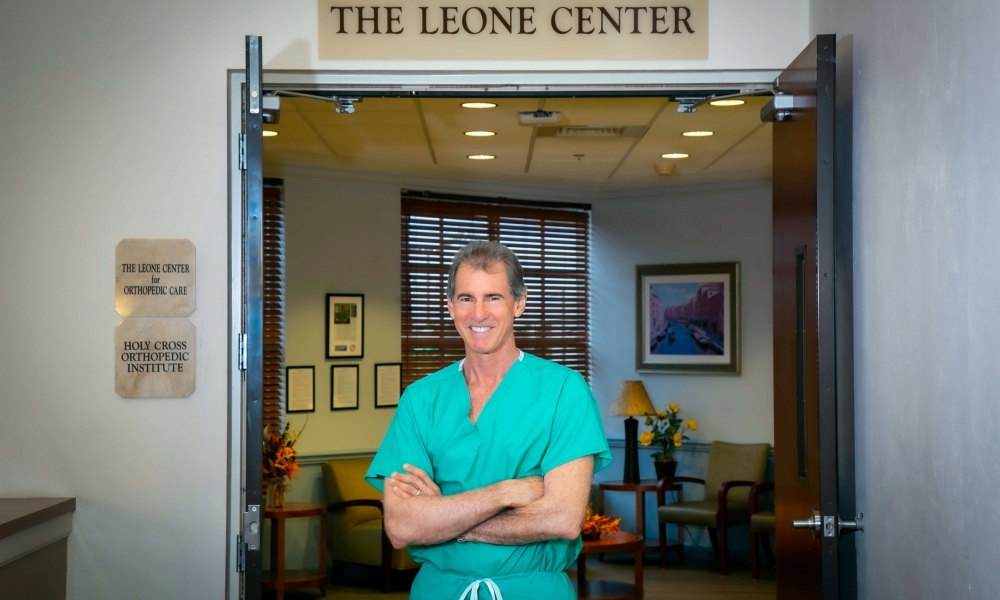
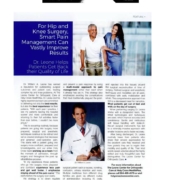
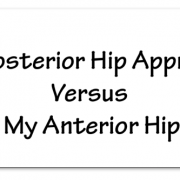

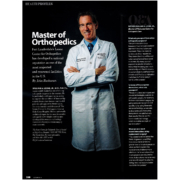
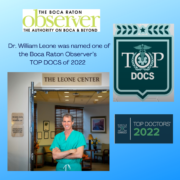
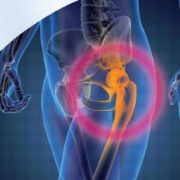
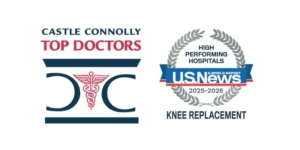
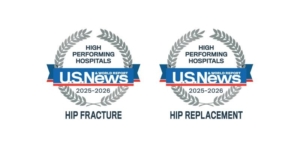



Dear Dr. Leone:
I am so happy I found this site. I had my right hip anterior and had excellent results, it took six weeks to be totally functioning, but very little pain. Now 5 years later, I have to have the left hip and the doctor no longer accepts my insurance. Can not find anyone to do the anterior and this mini posterior sounds good….but I’m so confused and so scared about the whole thing. I am 60 years old and I live in Rockland County, next to Westchester and New Jersey, and suggestions. I really need help. I can hardly walk and have to work.
Thank you for advice on surgery and any doctors! Lois
Dear Dr. Leone,
I’m a fit 52 year old woman in need of a total hip replacement. After much internet research, it seems to me that the mini-posterior approach is the way to go. I live in Dallas, Texas. Do you know any orthopedic surgeons in my area who are experienced in this procedure? If not, I’m able to travel for surgery and would like to know if you accept out-of-state patients.
Thank you,
Karen
Dear Karen,
While I do prefer the mini-posterior approach for the many reasons I wrote about, what I think is most important is choosing the individual surgeon who will operate and then direct your care after surgery, not just the specific approach. In the right hands, an excellent result can be obtained with many different approaches. Choose the best surgeon and then trust him to make those decisions. I also would emphasize choosing a premier hospital. A hospital which has earned a great reputation based on an excellent track record, including low complication and readmission rates. I am very fortunate the many patients travel from around the U.S., Canada, the Caribbean and Central and South America for my care.
William A. Leone
Dr. Leone,
I had a severe case of Legg-Calve-Perthes at the age of 2, which caused me a Stulberg Class IV outcome, a very shallow acetabulum. I have a LLD of 2,5cm and now at only 35, I am in constant pain, I have lost most of range of motion I had in my teens and walking down the street is a challenge. I am generally healthy, although now overweight from lack of exercising and constant pain.
Could I possibly be a candidate for a mini-posterior approach? I fear that considering the amount of work required in my hip joint that an more invasive approach may be necessary. What are your thoughts?
Dear Anna,
From your description of your hip pathology and present plight, it sounds like you may be helped with a total hip replacement.
Whatever approach is used to reconstruct your hip, it’s critical that the underlying pathology that led to the secondary arthritis is corrected and your hip mechanics restored as anatomically as possible. This means that the new hip joint center needs to be restored as close as possible to its anatomic position and the relationship or off-set between the femur and acetabulum also recreated.
Many times leg length inequality can also be corrected or improved after THR, but this will have to be a discussion you should have with your surgeon. Because your hip problems started when you were only 2 years old, your sciatic nerve has been in a shortened position for a lifetime and that may limit how much lengthening can be accomplished. Sometimes it is even necessary for the surgeon to shorten the femur (called a shortening femoral osteotomy) to prevent excess tension on the nerve and re-create appropriate relationships and soft tissue tension.
Also, if your acetabulum is too shallow to support a hemispherical cup, then the surgeon may elect to use your own femoral head as a structural bone graft. This will have the effect of provisionally supporting the new cup and augmenting the acetabular bone stock with time. Typically, if bone grafting the acetabum is necessary and/or osteotomizing the upper femur, then more dissection and soft tissue exposure is required. Also a longer and more complicated rehabilitation.
I don’t know if you are a candidate for a mini posterior approach. I think your question is an appropriate one and I would recommend discussing it with your surgeon. I think it’s important to find a qualified surgeon and have a frank discussion regarding the benefits of surgery as well as the risks.
I wish you the best of luck.
WAL
Hello my name is will and I’m in do for hip replacements starting in August my question is I don’t know which is the better approach ,does posterior does that mean it’s always going to be mini posterior and also what is the The best implant to use for an athlete I would like to be able to play volleyball again and maybe softball please send me a response of your opinion
Dear Will,
I don’t think there is “one best prosthesis” or “one best approach.” By far, the most important part of the equation is who does your surgery. My advice is to find a doctor you trust and a hospital with a proven track record, and then trust those professionals to take good care of you.
All the best,
Dr. William Leone
Dr. Leone,
Thank you for the informative articles within this website. About 1.5 years ago I was diagnosed with avascular necrosis of both hips. In May of this year, i received the first hip replacement. My surgeon used the mini-posterior approach. Even though it was discussed with me the precautions I would need to take and the mobility limitations I would experience post surgery, it was quite a reality shock once I actually had to experience them. Being that I am only 40, mobility is a big factor of consideration for me. I really haven’t received a straight answer from my surgeon about what my lifelong limitations actually will be and was hoping to get some insight from you about that. Does one generally stick to the post-op precautions for life? Should I always not bend past 90 degrees? Will I always have to use a sock-aid and changing stick? My second surgery is scheduled for the end of this month. However, due to my concerns about mobility, I am considering finding a surgeon who does the anterior approach. In reading many articles on the internet, rumor has it that in using the anterior approach, you will have increased mobility over the mini-posterior approach. Is this the case?
Thank you,
Mike
Dear Mike,
Any total hip can dislocate no matter what approach is used to implant it. Fortunately, if the components are optimally positioned and the tissue that surrounds the hip heals and matures (forms a complete pseudocapsule), then the incident of dislocation is extremely small. In my practice my emphasis on hip precautions, especially after the first six weeks, is less and less with each year. Most folks simply get back to doing whatever they want after 3 or 4 month. Some do it much sooner in spite of our discussion. Our patients continue to teach us. I would suggest you discuss this with you surgeon. He or she tested your hip after implantation and may have more insight regarding ongoing concerns. Mobility is not better or worse with an anterior, lateral or posterior approach. Many other factors can influence this.
I wish you the very best,
Dr. William Leone
Hello, I am 40yrs old and in need of a new R hip after going thru FAI,labral tear hip arthroscopy just 10mths ago. I was looking for the anterior approach due to no restrictions and quicker recovery howver, met with a surgeon who does posteriolateral and I really like/trust him. My question is restriction comparison for both ways and recovery. I read the posterolateral is a harder recovery and has to stupid toilet seat limitations etc along with never crossing legs (which i do ALOT and dont know if i can stop) I am or was very athletic and just want to get back to living my life. Thanks
Dear Sue,
What is most important is that your hip is expertly implanted, so that hopefully it will allow you to return to your active lifestyle and last more than twenty years. Both anterior and posterior approaches can facilitate that. Both have advantages and disadvantages. The most important part of the equation is who does the surgery. One approach does not have a faster or slower recovery. Once again, this is operator and patient dependent. Many of the traditional precautions for the posterior approach no longer are requested, and those requested are for only a short period of time. If you get great vibes from a particular surgeon and that individual has the experience and reputation, then I think that is what is most important. I would suggest sharing these concerns with him or her.
I wish you the best,
Dr. William Leone